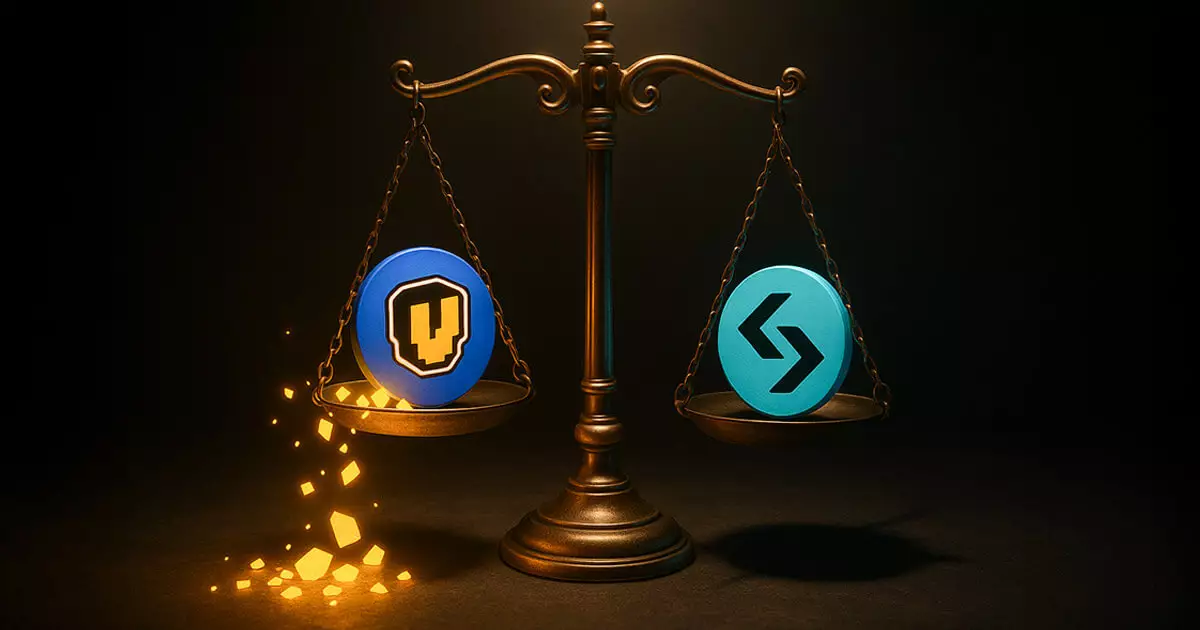The cryptocurrency landscape has always been fraught with volatility, but the recent incident involving the exchange Bitget is a stark reminder of how quickly things can spiral out of control. Bitget has announced plans to take legal action against eight users who allegedly profited over $20 million from a trading glitch related to the VOXEL token. This situation illuminates a concerning trend in the crypto world—where ethical boundaries are easily crossed in the name of profit.
On April 20, a glitch led to the VOXEL token’s price surging by an eye-popping 200%, creating an unprecedented frenzy that allowed some users to rake in substantial earnings from insignificant investments. Such occurrences are becoming eerily common in the volatile realm of cryptocurrencies, where glitches can reshape fortunes almost overnight. The idea that a coordinated “wool-pulling interest group” could exploit this vulnerability raises eyebrows about the integrity of the trading processes on platforms like Bitget.
Bitget’s Response: Swift Yet Questionable
Bitget’s swift reaction to the incident speaks volumes about its commitment to maintaining a semblance of order. According to executive Xie Jiayin, the affected accounts are suspected of being part of a well-organized player in the ruthless digital marketplace. The exchange’s pledge to issue lawyer’s letters and aim to reclaim the $20 million is commendable but leaves us pondering: where were the checks and balances that could have prevented this from happening in the first place?
Ironically, Bitget attempted to reassure the public that the funds recovered from these rogue transactions will be redistributed to legitimate users through an airdrop program. This raises important questions about the morality and practicality of a system that allows a few individuals to manipulate circumstances for massive gains at the expense of countless honest traders. Can we truly trust the integrity of exchanges when such systemic vulnerabilities exist?
The Aftermath: What Lies Ahead for VOXEL and Bitget?
As the dust settles, the incident has catapulted VOXEL into the spotlight, transforming it into a top-performing gaming token practically overnight—an ironic twist that reflects the nature of speculative trading. However, the real concern lies not just in the profits claimed from glitches, but in how such incidents might discourage legitimate trades, eroding consumer confidence.
Bitget’s promise to publish a comprehensive report on the incident may shed light on the lack of safeguards that led to this debacle. Yet, the question lingers: will the crypto community learn from this mistake, or will it continue down a path rife with speculative risks and governance failures? The answer is critical for the future integrity of trading platforms.
In a world where the line between innovation and exploitation is razor-thin, the volatility of cryptocurrencies like VOXEL exposes all players—traders, exchanges, and regulators alike—to precarious risks. Instead of becoming mere spectators, we must collectively demand stricter regulations and standards to prevent such unethical practices from becoming the norm. Without a concerted effort toward accountability, the cryptocurrency revolution may morph into a chaotic free-for-all, and that is a future we should all strive to avoid.

